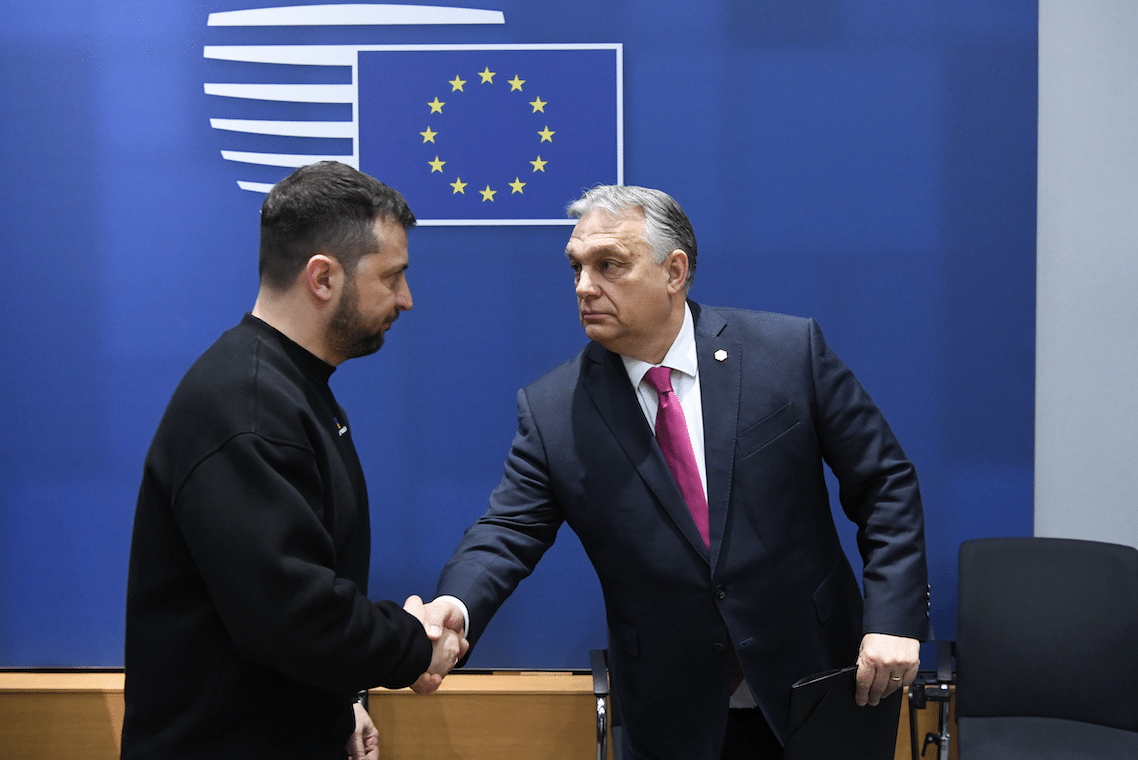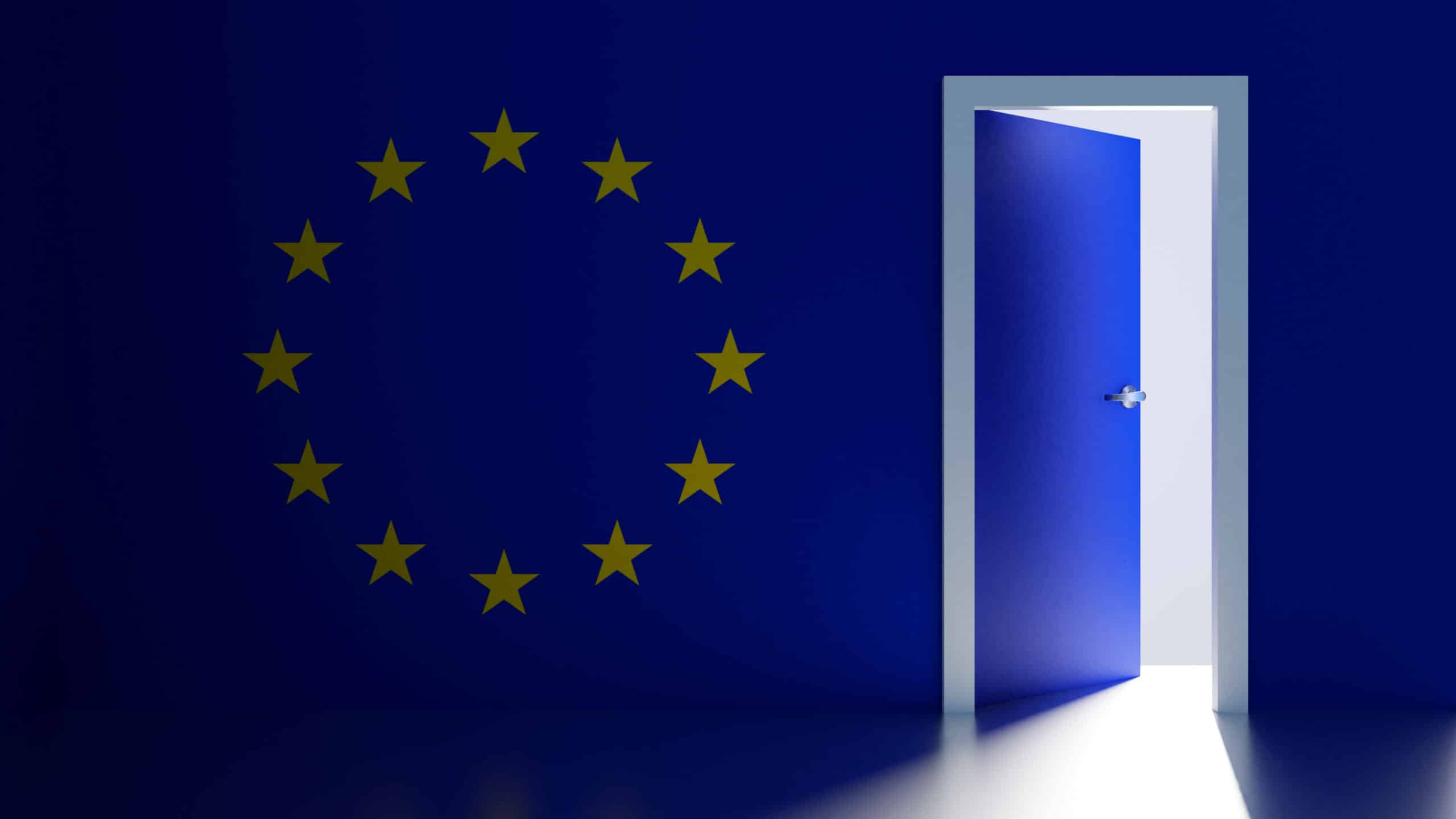Brussels -Early indications had already come from the highest office of the European Council, Charles Michel, after the March summit of EU leaders. Now rumors, leaked from the Commission, confirm that work is intense to start EU accession negotiations with Ukraine as early as the end of June. More precisely, on June 25, when the next General Affairs Council, responsible for deciding (unanimously) on the green light for intergovernmental conferences with candidates for EU membership, will meet.

Confirming this push in Brussels are several Politico sources, who report how EU and Ukrainian diplomats have intensified efforts in recent weeks to try to convince the Hungarian government led by Viktor Orbán not to veto and make sure that the issue does not have to come up again (or be crossed off until the end of the year) during the Hungarian rotating presidency of the EU Council. At the end of the March 21 European Council, Michel had confessed that the hope was to “arrive at the first intergovernmental conference under the Belgian Presidency” before the handover to Budapest for the six-month leadership of the EU institution (which defines calendars and agenda items for the meetings of ministers in the different Council compositions).

From left: the President of Ukraine, Volodymyr Zelensky, and Hungarian Prime Minister, Viktor Orbán (Feb. 7, 2023)
After granting candidate country status to Ukraine in June 2022 and despite the steady progress registered by the European Commission over the next year and a half, Hungarian PM Orbán chose to obstruct the path to try to prevent the green light for accession negotiations with Kyiv. Only through constant pressure from the EU institutions – and the unblocking of about 10 billion euros in funds for Budapest – Orbán made a rather unusual and striking gesture at the December 14, 2023, European Council: he left the room at the time of the vote so that the other 26 EU leaders could approve the most eagerly awaited of the summit conclusions. At the next summit in March, the heads of state and government called on the 27 ministers of European affairs to “quickly adopt” the draft negotiating frameworks and “take work forward without delay.”
Since then, EU, Belgian (which holds the rotating Presidency until June 31), and Ukrainian diplomacy have engaged intensively with Budapest to address concerns about Hungarian minorities in Ukraine, including through Kyiv’s response to an 11-point list drawn up by Hungary. The hope is that the Orbán government may be interested in wrapping up the issue of Ukraine’s accession talks before it assumes the six-month Presidency to avoid having his term punctuated by pressure and controversy in this regard (and given the fact that this is not the last opportunity for Hungary to use its veto power to block Kyiv’s EU membership). First, however, the negotiating framework was agreed upon on based on the European Commission’s proposal, which is now being considered by the 27 governments and on whose green light the start of the first intergovernmental conference will depend, perhaps as early as June 25.
How the EU accession process works
The EU enlargement process begins with a non-EU state submitting a formal application for membership to the rotating presidency of the Council of the European Union. Union membership first requires passing the test of the Copenhagen criteria (established at the European Council in the Danish capital in 1993 and strengthened by the EU leaders’ meeting in Madrid two years later). These criteria are divided into three groups of basic requests that the EU addresses to the country that has applied for membership: rule of law and democratic institutions (including respect for human rights and the protection of minorities), stable market economy (ability to cope with market forces and competitive pressure), and fulfillment of its obligations (effectively implementing the body of EU law and meeting the objectives of political, economic and monetary union).
Having obtained a positive opinion from the Commission, the country is given candidate status with the approval of all members of the Union. Then the Commission recommends to the EU Council to open negotiations that, again, require the unanimous go-ahead of the member countries: this allows to open the negotiating chapters (varying in number), the purpose of which is to prepare the candidate on the implementation of the necessary judicial, administrative, and economic reforms. Upon completion of the negotiations and EU enlargement is possible in terms of absorption capacity, the Accession Treaty is signed (with the terms and conditions for accession, including any safeguard clauses and transitional provisions), which must first be approved unanimously by the European Parliament and Council.
Ukraine and the other 9. Where does EU enlargement stand
The upheaval in EU enlargement began four days after the Russian armed aggression when, in the midst of the war, Ukraine applied for “immediate” membership in the Union, with the application signed on February 28, 2022, by President Zelensky. Demonstrating the irreversibility of a process of rapprochement with Brussels as an explicit reaction to the risk of seeing its independence from Moscow erased, three days later, on March 3, Georgia and Moldova followed the same path. The European Council of June 23, 2022, approved the line drawn by the Commission in its recommendation: Kyiv and Chișinău became the sixth and seventh candidates for EU membership, while Tbilisi was recognized as having a European perspective in the EU enlargement process. In the EU Enlargement Package 2023, the Commission recommended opening accession negotiations with Ukraine and Moldova and granting Georgia candidate status to the Council. The December EU leaders’ summit accepted all requests, and now only the formal start of negotiations and the adoption of negotiating frameworks for the first two are awaited. 
Of the six Western Balkan countries that have begun the long road to EU membership, four have already started accession negotiations – Albania, North Macedonia, Montenegro, and Serbia – one has received candidate status – Bosnia and Herzegovina – and the last has formally applied for and is awaiting the response of the 27 Member States – Kosovo. For Albania and North Macedonia, negotiations began in July 2023 after waiting eight and 17 years, respectively, while Montenegro and Serbia have been at this stage for 12 and 10 years, respectively. Six years after applying for EU membership, Bosnia and Herzegovina became a candidate on December 15, 2022, to join the Union and, at the European Council on March 21, received an endorsement to formally start accession negotiations. Kosovo is in the most complicated position since its formal request sent in late 2022: since its unilateral declaration of independence from Belgrade in 2008, five EU member states – Cyprus, Greece, Romania, Spain, and Slovakia-continue not to recognize it as a sovereign state.
Negotiations for Turkey‘s accession to the European Union began in 2005 but have stalled since 2018 due to backward steps on democracy, the rule of law, fundamental rights, and the independence of the judiciary. According to the chapter on Turkey in the latest annual Enlargement Package presented in October 2022, the country “does not reverse course and continues to move away from EU positions on the rule of law, increasing tensions over border respect in the Eastern Mediterranean.” At the NATO summit in Vilnius at the end of June, Turkish President Recep Tayyip Erdoğan tried to force his hand, threatening to link Sweden’s membership in the Atlantic Alliance to the opening by Brussels of Turkey’s path back to the EU. The blackmail failed. However, a special report in Brussels addressed the dossier.
Find more insights on the Balkan region in the newsletter BarBalcani hosted by Eunews
English version by the Translation Service of Withub








